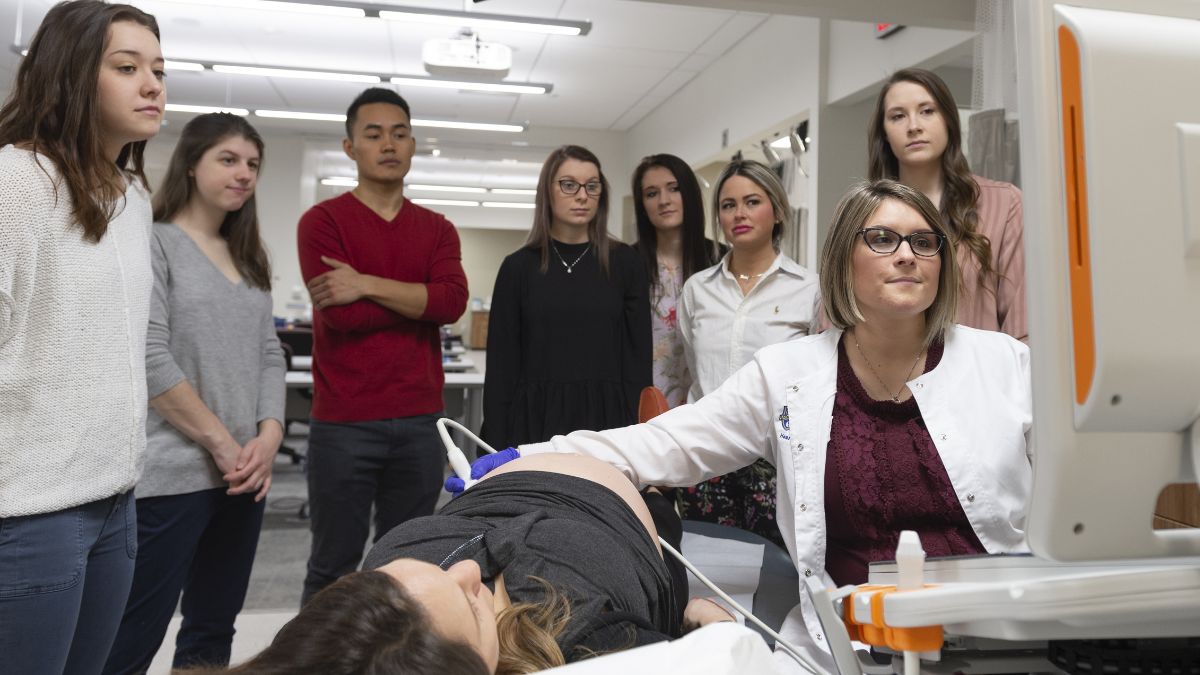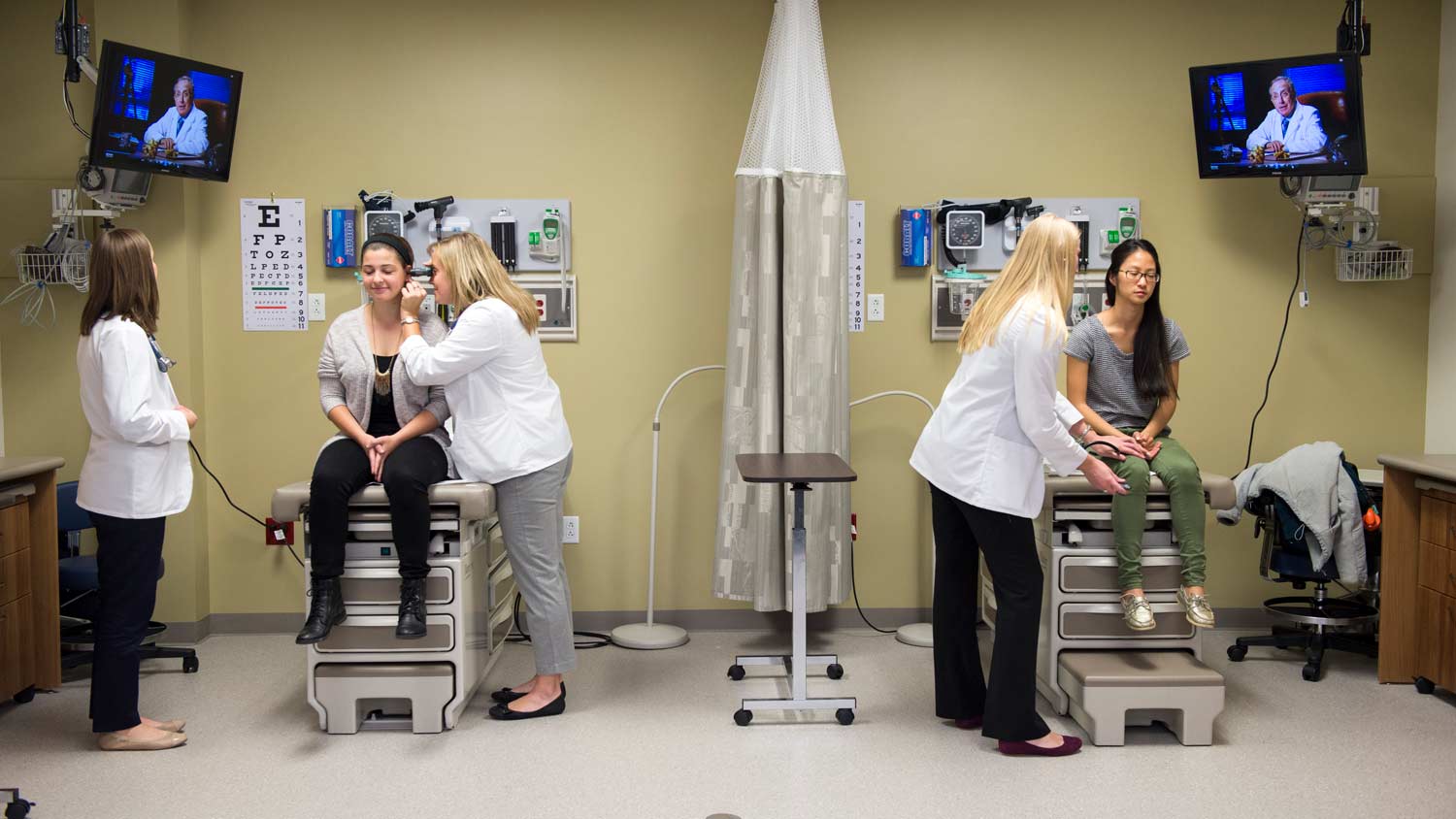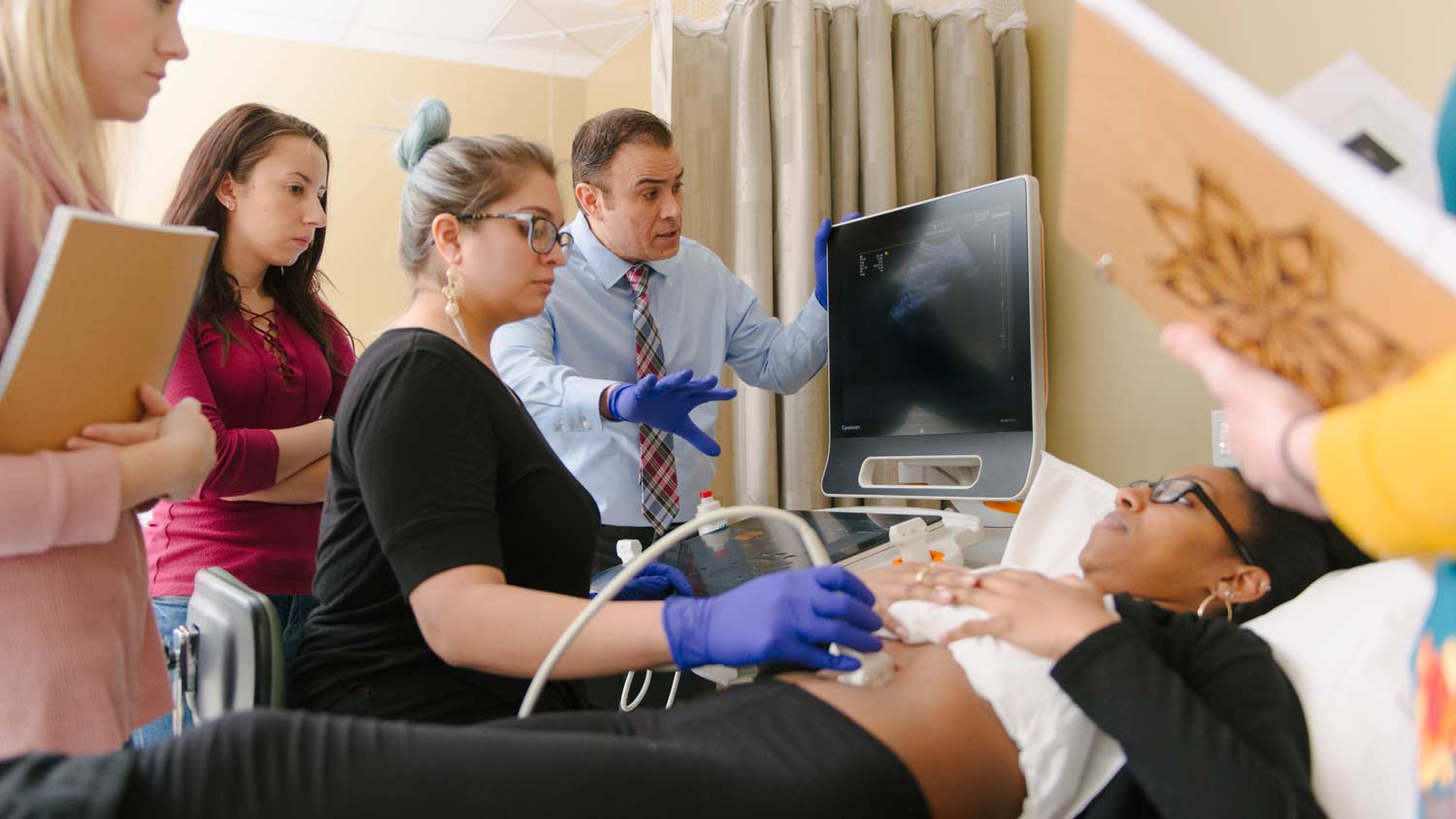Department of Clinical Health Professions

Department of
Clinical Health Professions
- RIT/
- College of Health Sciences and Technology/
- Academics/
- Departments, Schools, and Centers/
- Department of Clinical Health Professions
We incorporate experiential, evidence-based, patient-centered training through innovative technology.
Overview
The Department of Clinical Health Professions (DCHP) is where education, technology, experiential learning, and research focused on healthcare intersect. The expansion of knowledge and technology and the increasing demand for high quality care necessitates the need for highly-trained healthcare professionals. The DCHP is a leader in preparing compassionate, well-rounded, well-educated healthcare professionals and leaders. We do this through innovative, high quality educational and practical experiences, with an emphasis on clinical medicine, medical imaging, behavioral health, and research that embraces the rapidly changing knowledge, technology and clinical landscape.
- Accredited, cutting-edge programs that stress the application of knowledge.
- Rigorous, hands-on approach and practical experience.
- On-campus state-of-the-art equipment, digital therapeutics, and simulation facilities, which supplement clinical education and provide hands-on experiences.
- Exceptional licensure and certifications pass rates and job placements.
- Engaging and passionate faculty about education and breakthrough research who are fully committed to developing exceptional and compassionate healthcare professionals and leaders.
- Diverse, ambitious, and innovative students.
- Internal and external clinical affiliations, partnerships, research, and internships that provide students with relevant knowledge, in real-world settings with real-world problems.
- Diversity, equity, inclusion, shared governance, and high ethical standards.
- Student-centeredness and career path.
- Collegiality, respect, collaboration, and teamwork.
- Creativity, innovation, and excellence in teaching, research, and learning effectiveness.
- Academic excellence, practical experiences, and lifelong learning.
- Interdisciplinary, inter-professional and collaborative spirit.
- Pursuit of new and emerging clinically related career areas.
- Development of curricula in response to changing technology and healthcare.
- Effective communication, development and establishment of internal and external clinical affiliations and partnerships, which expand educational experiences, professional growth, and career prospects.
- Establishing innovative solutions and new knowledge that makes a difference in the delivery of patient care and the future of healthcare.
- Engagement and collaboration with alumni, medical industry, and local, regional, national, and global communities.
- Humanism and compassion, which complement career-oriented knowledge and skills.
- Integration and utilization of state-of-the-art medical imaging and other technologies in education and research.
- Compliance with Health Insurance Portability and Accountability Act (HIPAA) regulations and guidelines.
Accreditation
Our bachelor of science degree in diagnostic medical sonography and physician assistant program are accredited by the Commission on Accreditation of Allied Health Education Programs upon the recommendation of the Joint Review on Education in Diagnostic Medical Sonography (JRC-DMS) and the Accreditation Review Commission on Education for Physician Assistants respectively. Please visit each program webpage for more information about program accreditation and organizations.
Our priority behavioral health and clinical psychology internship is accredited by the American Psychological Association (APA) Commission on Accreditation.
Degree Programs
In RIT’s diagnostic medical sonography degree you’ll use learn to use ultrasound to diagnose, evaluate, and treat a range of medical diseases and conditions.
Learn more about the Diagnostic Medical Sonography (Ultrasound) BS programExplore OB/GYN, abdominal, and small parts sonography as you deepen your knowledge of ultrasound technology.
Learn more about the Diagnostic Medical Sonography (Ultrasound) Certificate programDevelop an expertise in examining the heart using ultrasound technology as you gain the skills necessary to excel in this exciting health care field.
Learn more about the Echocardiography (Cardiac Ultrasound) Certificate programTrain to diagnose, treat, and care for patients with hands-on experience in RIT’s physician assistant program.
Learn more about the Physician Assistant BS/MS programFeatured Work and Profiles
-
Doubling Down on Pediatric Care: RIT Alumna Opens Second AcuteKids Center
RIT alumna Chrysa Charno opens second AcuteKids Pediatric Urgent Care location, expanding her health care services for children.
Read More about Doubling Down on Pediatric Care: RIT Alumna Opens Second AcuteKids Center -
From RIT to Bahrain: Alumna's Fulbright Award Fuels Vital Asthma Study
RIT physician assistant alumna Maria Morcos wins a Fulbright Award. She will conduct a clinical trial on asthma in Bahrain at the Royal College of Surgeons.
Read More about From RIT to Bahrain: Alumna's Fulbright Award Fuels Vital Asthma Study
News
-
March 17, 2025

Camp Good Days inspires RIT physician assistant student
Deeply interested in how disease shapes children's lives, her experience interacting with pediatric cancer patients, survivors, and family members at Camp Good Days has enhanced her RIT education with interpersonal skills that are difficult to learn through textbooks.
-
December 17, 2024

PA students at RIT get high-tech anatomy table
WROC-TV speaks to Christopher Montanaro, lecturer in the physician assistant program, and Lexi Pieri, a fourth-year physician assistant student, about the table.
-
December 1, 2023

Distinguished Alumni Award winners named for 2023-2024
Twelve RIT alumni have been honored with Distinguished Alumni Awards for the 2023-2024 year. The Distinguished Alumni Awards are presented annually by each of RIT’s nine colleges, the School of Individualized Study, and the RIT Graduate School to alumni who have performed at the highest levels of their profession or who have contributed to the advancement and leadership of civic, philanthropic, or service organizations.
Facilities
-
 Physician Assistant Lab
Physician Assistant LabArranged as a central classroom with mock examination stations positioned around the perimeter, the Physician Assistant Lab provides opportunities for lecture and break-out stations that support clinical skill training for physician assistant majors.
-
 Ultrasound Scanning Suite
Ultrasound Scanning SuiteTo remain a leader in educating technically sound sonographers, the diagnostic medical sonography program emphasizes not only on the didactic aspect of learning, but also the practical, hands-on, clinical aspect.








